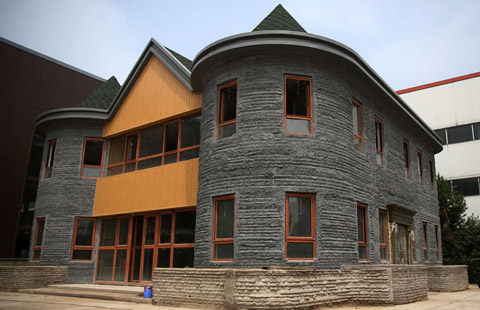

NANNING - Doctor Qin Jiang commutes from his clinic to rural homes and then onto a "red light zone" in the backstreets of Bainong, an impoverished village of south China's Guangxi Zhuang Autonomous Region.
He is often seen within crowds in the center of the village handing out AIDS-prevention brochures and answering people's questions on how to protect themselves from infection.
Qin, 49, knows who of the 2,000 villagers regularly visit underground brothels in the backstreets. These people, mostly bachelors aged over 30 -- an age considered too old to remain single in the Chinese countryside, are the most susceptible group, according to Qin.
"There're about 28 bachelors in the village," he said.
They regularly visit brothels and pay a meager 13 yuan for prostitutes. But a lack of protection has caused AIDS and other venereal diseases to spread. Two villagers have died of AIDS.
As the only doctor at the village clinic, Qin spends most of his time visiting these bachelors. "I try to convince them that they have done nothing wrong, and their needs are perfectly healthy. I just remind them to use condoms and receive health checks to minimize infection risks."
He has also persuaded some sex workers to leave the trade, which is illegal in China.
Guangxi has China's second largest number of HIV/AIDS patients, next only to Yunnan Province on the southwestern border.
Thanks to the efforts of Qin and thousands of other rural doctors, the number of new HIV/AIDS infections in Longzhou county has reduced by 21 percent from last year, said Zhang Yi, deputy chief of the county's disease prevention and control center.
The impoverished Longzhou county is one of the worst AIDS-infected regions in Guangxi. At the end of last year, the county reported 1,070 HIV-carriers and confirmed AIDS patients. Seventy-five percent of the cases were transmitted through sex.
In 2010, the regional government launched a three-tiered prevention system involving rural doctors at village clinics to deliver AIDS prevention services to every door.
To date, about 37,500 rural doctors are at the forefront of AIDS prevention in Guangxi.
From November 2011, these doctors received special training offered by local health authorities and NGOs, armed with counseling and communication skills in order to promote AIDS prevention knowledge among villagers and sex workers.
Zhang said the move has proven effective. "Seventy new infections were reported from January to May, 21 percent down from the same period last year."
The prevention system has also proven effective in Pingxiang, a city on the China-Vietnam border, where new infections were down by 14.8 percent in the first half of the year, said Zhang.
In Bama county, an autonomous county of the ethnic Yao people, village doctors have composed dos and don'ts about HIV/AIDS prevention into folk songs, a popular means of entertainment among locals.
The songs, on CDs, are distributed to every household.
Luo Mingxue, 57, said he was unable to read the booklet handed out to him with HIV/AIDS prevention tips. But by listening to the songs, he knows precisely how disease spreads and how to avoid risks.
Door-to-Door, Heart-to-Heart
Li Chunhua, 38, openly admits she is a sex worker. A native of the central China province of Hunan and mother of a school age boy, she thinks the job is less demanding but better paid than most other jobs available to migrants like her.
One of some 200 sex workers in Guangxi's Lingshan county, Li works with 10 other women, aged from 18 to 60, at an out-of-the-way video room where porn movies flicker all night long.
She serves at least five customers a day and earns 20 yuan each time. "In the busiest days, I can make more than 200 yuan a night, " said Li.
Her workday starts at 5 p.m., when she gets up, powders her face and puts on skin-tight pants and fake jewels.
Most of her customers are local farmers, largely men that remain unmarried after 40.
Li's husband and parents know vaguely what she does. "Several young women from my home village have followed me into the job."
Li and her co-workers know the risks. They opened up to Li Weichang, a doctor with the county's disease prevention and control center, and now a regular visitor to their video room.
Wei, in his late 30s, is now able to speak openly with the women, who were hostile to him in the beginning. "They felt I was a government spy and refused to talk to me."
Initially, he carefully avoided the topic of AIDS, and talked about family life, parents and children. As the barriers came down, he began distributing condoms and AIDS-prevention brochures, and reminded the women to stay healthy.
Within a year, he befriended more than 100 sex workers in the county.
Thanks to rural doctors who are preventing HIV/AIDS infection from the very root, Guangxi's total number of newly reported HIV-infected cases and confirmed AIDS patients dropped by 18.6 percent year-on-year in the first ten months of the year.
AIDS-triggered deaths were cut by 7 percent, according to the regional health administration.
Poverty
Poverty remains a major challenge in HIV/AIDS prevention in China's underdeveloped regions. It has forced women into prostitution and men to sell blood to illegal dealers, in both cases infection risks are high.
As the only doctor for more than 2,000 villagers, Qin Jiang is overburdened with general practice and AIDS prevention. He never has time for farming, which should be the bulk of his family income.
"I get 300 yuan a month in subsidy for AIDS prevention and about 1,000 yuan from general practice," he said. "I can make as much money by harvesting sugar cane for just a week."
To increase his family income, Qin moonlights by keeping watch at a local factory, a night job that pays another 1,000 yuan a month.
Hard work and low pay make a rural doctor's job unappealing for new graduates.
"Most village doctors are aged over 40 and we haven't recruited any new graduates for more than 10 years," said Zhang Yi, deputy chief of Longzhou county's disease prevention and control center.
To strengthen AIDS prevention at grassroots levels, he said more government spending is essential to improve village hospital facilities, increase doctors' income and provide better training.







